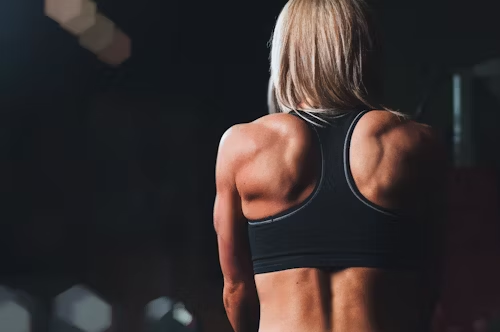Introduction

As a dedicated gym-goer and aspiring bodybuilder, your focus extends far beyond just building an impressive physique. True fitness encompasses both physical and overall well-being, with nutrition playing a crucial role in this holistic approach. In this blog post, we’ll explore the best food diet for gym bodybuilders, empowering you to fuel your fitness journey while prioritizing your health and wellness.
The Macronutrient Balancing Act
At the heart of a bodybuilder’s diet lies the perfect balance of macronutrients: protein, carbohydrates, and healthy fats. Each of these macronutrients serves a distinct and vital role in supporting your fitness and wellness objectives.

Protein: The Building Blocks of Muscle
Protein is the essential macronutrient for bodybuilders, as it provides the amino acids necessary for muscle building, repair, and recovery. Adequate protein intake is crucial for preserving and growing lean muscle mass, which is the key driver of a lean, sculpted physique. The recommended protein intake for bodybuilders typically ranges from 1.6 to 2.2 grams of protein per kilogram of body weight, with the higher end of the spectrum being more appropriate for individuals in an intense bulking phase or those with a very active lifestyle

Carbohydrates: Fuel for Fitness
They are converted into glucose, which is then used by your muscles to power your training sessions and support muscle glycogen stores. Maintaining adequate carbohydrate intake is crucial for sustaining your energy levels, delaying muscle fatigue, and promoting faster recovery. The optimal carbohydrate intake for bodybuilders generally falls within the range of 4 to 7 grams per kilogram of body weight, with the higher end being more suitable for those in a bulking phase or engaging in prolonged, high-intensity training.
Healthy Fats: The Overlooked Macronutrient
While often overlooked, healthy fats play a vital role in a bodybuilder’s diet. They support hormone production, brain function, and overall bodily health. Additionally, fats provide a slower-burning energy source that can help sustain you during extended training sessions. The recommended fat intake for bodybuilders typically ranges from 0.5 to 1.5 grams per kilogram of body weight, with the higher end being more appropriate for those in a bulking phase or individuals who respond well to higher fat intake.
Meal Timing and Frequency: Fueling Your Fitness
Bodybuilders thrive on a regimented meal schedule, with multiple smaller meals throughout the day. This approach helps to maintain a steady supply of nutrients, prevent muscle catabolism, and support optimal muscle growth and recovery. Aim for 5-6 meals per day, spaced 2-3 hours apart, to keep your metabolism revved and your muscles fueled. This frequent feeding strategy helps to: Provide a continuous supply of amino acids for muscle protein synthesis. Prevent muscle breakdown and support recovery. Boost metabolism and promote fat loss. Nutrient-Dense Foods for Bodybuilders
When building your bodybuilder’s diet, focus on incorporating the following nutrient-dense whole foods:
Lean Proteins: Chicken breast Turkey breast Lean beef (such as 93% lean ground beef or top sirloin) Eggs Greek yogurt Cottage cheese Salmon, tuna, and other fatty fish Protein powder (whey, casein, or plant-based) Complex Carbohydrates: Oats Brown rice Quinoa Sweet potatoes Whole-grain breads and cereals Fruits (berries, bananas, oranges) Vegetables (broccoli, spinach, asparagus, bell peppers) Healthy Fats: Avocado Nuts and seeds (almonds, walnuts, chia, flax) Olive oil Coconut oil Fatty fish (salmon, mackerel, sardines)By focusing on these nutrient-dense whole foods, you’ll ensure that your body is receiving the essential vitamins, minerals, and antioxidants necessary for optimal health and wellness, in addition to the macronutrients required for muscle growth and recovery.
Hydration and Supplementation
Aim to drink at least 1 gallon (3.8 liters) of water per day, and consider adding electrolyte-rich beverages to your routine to replace the minerals lost through sweat during intense training sessions. In addition to a well-balanced diet, certain supplements can provide a helpful boost in your fitness journey. Some popular and effective supplements for bodybuilders include: Whey Protein: A high-quality source of fast-absorbing protein, whey can help support muscle protein synthesis and recovery.
Creatine:
This compound helps to increase muscle energy stores and has been shown to enhance strength and muscle growth. Branched-Chain Amino Acids (BCAAs): BCAAs, particularly leucine, isoleucine, and valine, can help reduce muscle protein breakdown and promote muscle repair.
Timing Your Nutrition: Bulking and Cutting Phases
Bodybuilders typically go through two distinct phases in their training and nutrition regimen: the bulking phase and the cutting phase.
Bulking Phase:
During the bulking phase, the goal is to build muscle mass by consuming a calorie surplus, typically in the range of 300-500 calories above your maintenance level. This surplus, combined with a strength-focused training program, creates the optimal conditions for muscle growth.
read more about health wellness
Cutting Phase:

This is achieved by creating a calorie deficit, typically in the range of 300-500 calories below your maintenance level. Putting it All Together: A Sample Bodybuilder’s Diet To help you visualize how a bodybuilder’s diet might look, here’s a sample meal plan that adheres to the principles we’ve discussed: Meal 1 (Pre-Workout): 6 egg whites 1 cup of oatmeal 1 medium banana Meal 2 (Post-Workout): 30 grams of whey protein 1 cup of brown rice 1 cup of steamed broccoli Meal 3: 6 ounces of grilled chicken breast 1 cup of quinoa 1 cup of roasted sweet potatoes
Your point of view caught my eye and was very interesting. Thanks. I have a question for you.